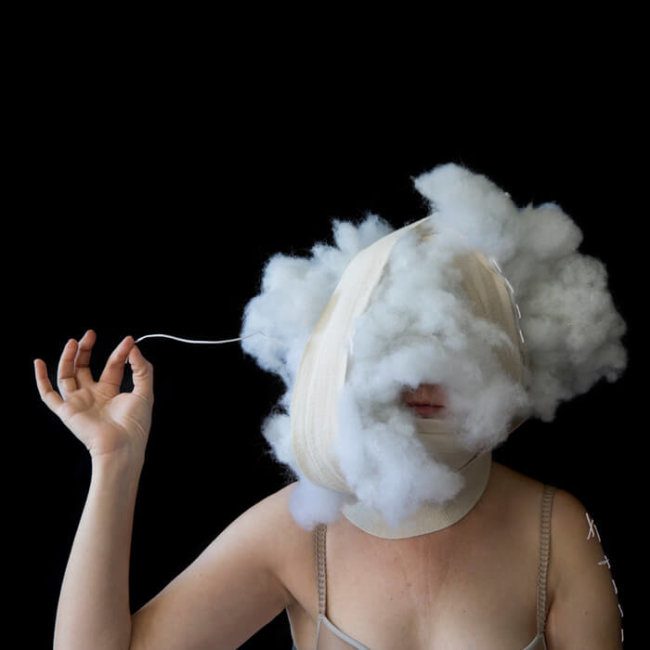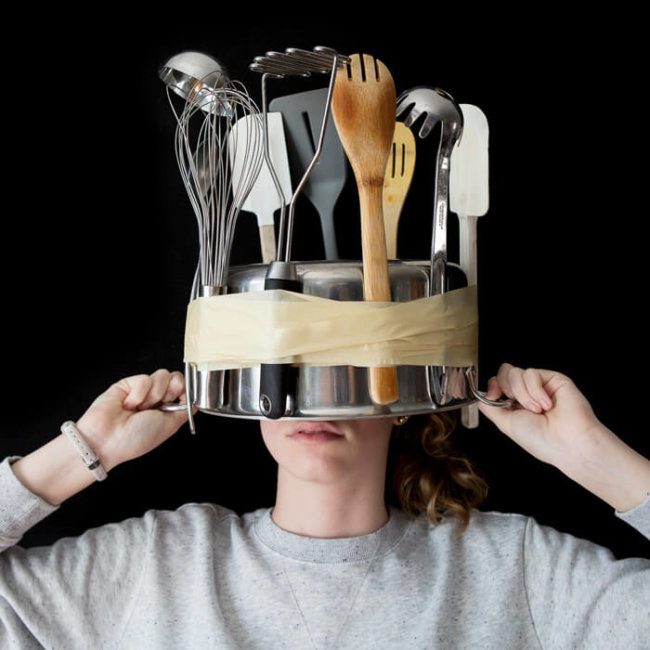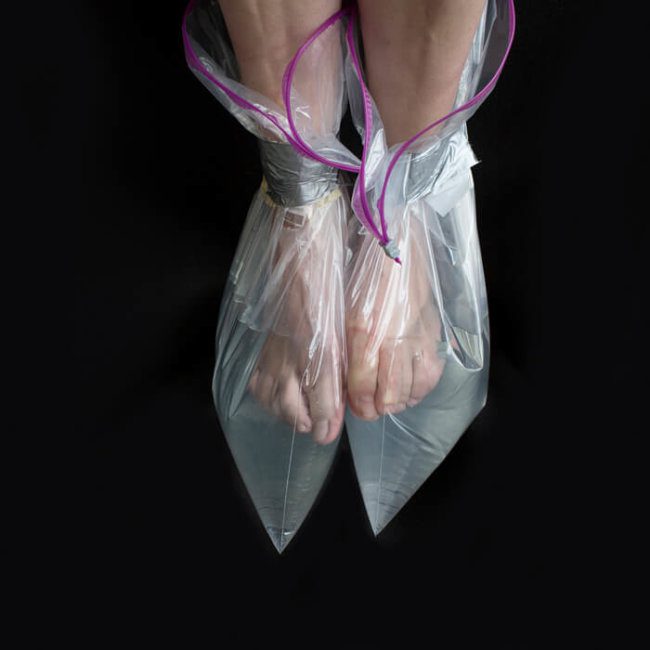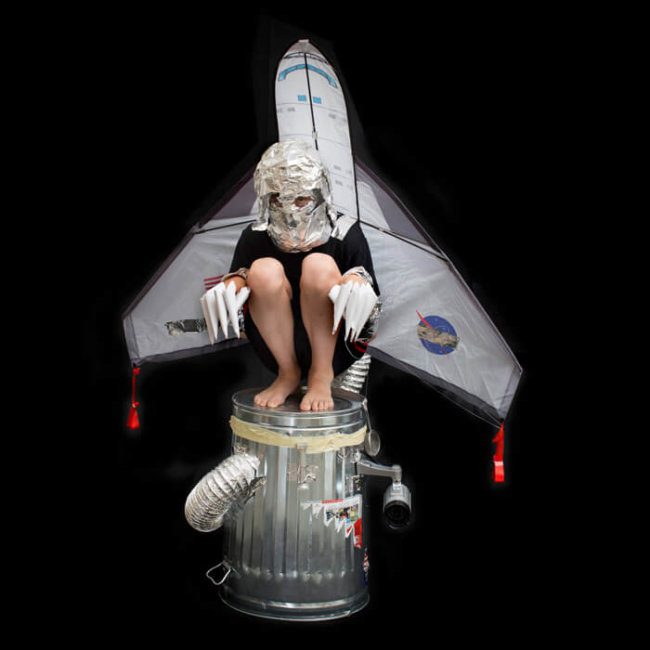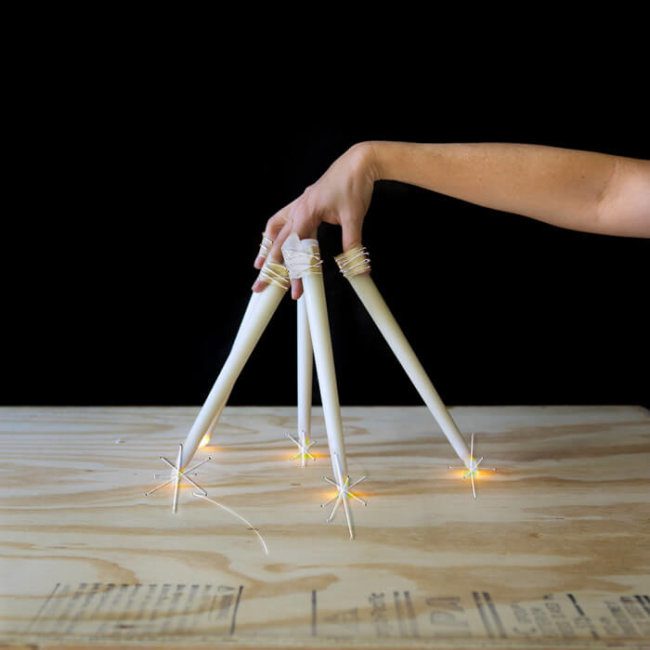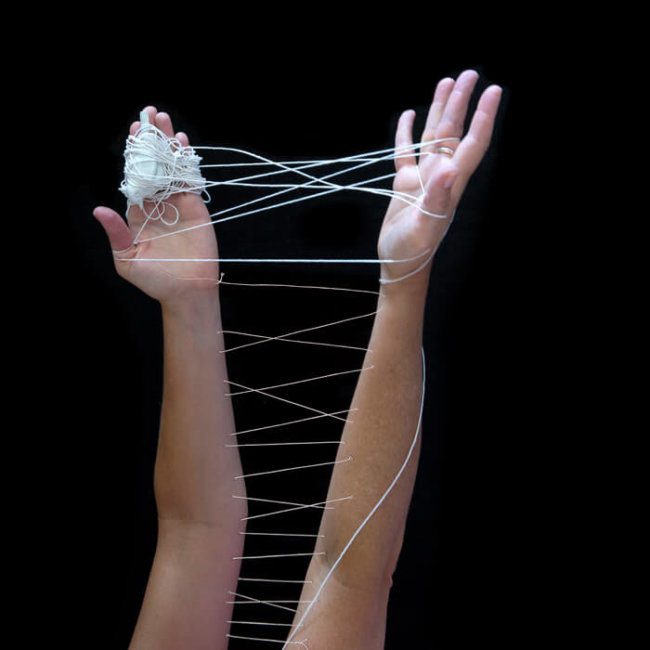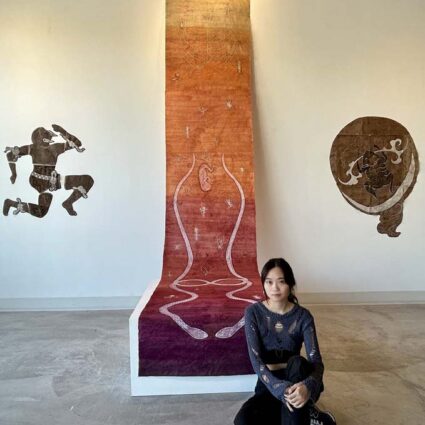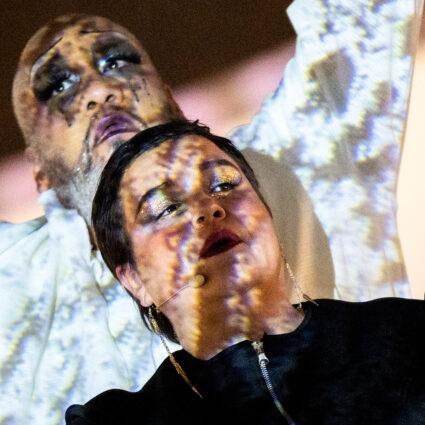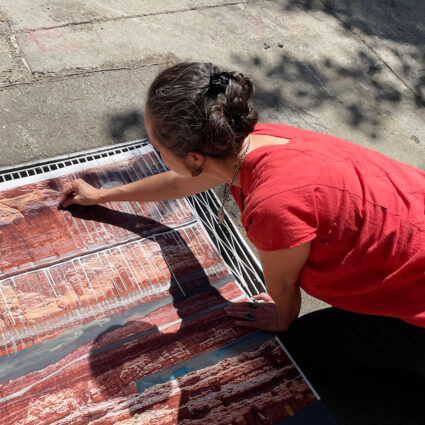Hillerbrand+Magsamen, the Houston artist collective, creates artwork that comments on family dynamics and American consumer culture.
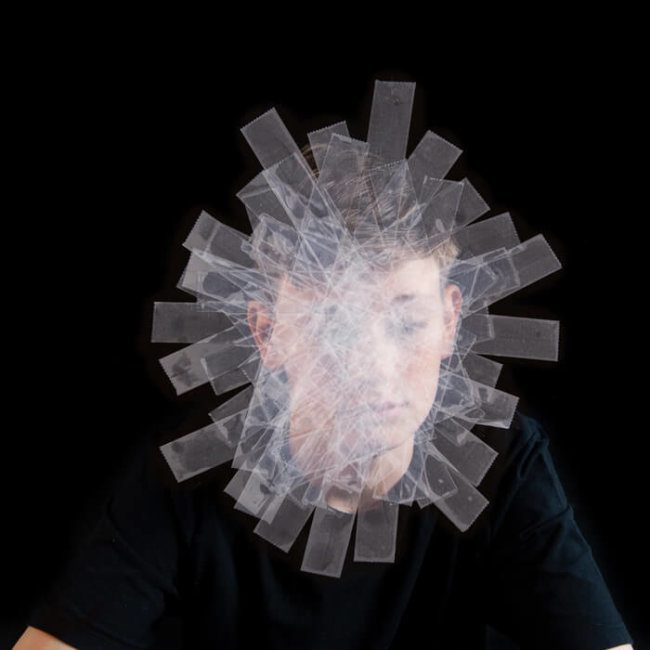
All the members of this Houston-based artist collective have something in common: they’re family. Mary and Stephen collaborate with their children Madeleine and Emmet to create artworks that comment on family dynamics, American consumer culture, and by nature of their ongoing collaboration, changing and evolving familial relationships. Their work is performative and often blurs the boundaries of their home life and art through the incorporation of personal, everyday objects from hairbrushes to blenders. They photograph these performances and much of their work lives on through these images.
One of their most recent projects, 147 Devices for Integrated Principles, was initially developed for a performative lecture that instructed the audience how to create physical coping mechanisms from things lying around their house. The artists were responding to overwhelming circumstances in their lives and the world that had no easy solutions, such as massive hurricanes and aging parents. Their collective desire was for a device, or even an app, that could help them heal, cope, and make sense of these profound burdens. This project was created in 2019 and could not feel more relevant, even prescient, to the global moment in 2020/2021, dominated by new apps, services, and vaccines that promise to solve personal and global hardships. Mary, Stephen, Maddie, and Emmet made devices out of laptops, Gatorade bottles, plastic spoons, tape, garbage bags, and more with such names as A Device to be Heard, A Device to Forgive Yourself for all the People You’ve Wronged, A Device to Heal, and A Device for Emotional Intelligence. The objects are absurd, beautiful, surprising, and steeped in the power of ritual.
Hillerbrand+Magsamen’s expansive relationship with their “stuff” offers an alternative narrative to waste, recycling, and repurposing that emphasizes imbuing mundane objects with power. A Device to Forgive Yourself for all the People You’ve Wronged, made from a stainless steel pot adorned with a whisk, spatula, wooden spoons, and other kitchen utensils, simultaneously alludes to a crown and VR headset, as it is worn over the eyes. This new union of objects is at once unexpected and delightful, and yet, it is a reminder that one can do more than blend with a blender or brush hair with a hairbrush. 147 Devices suggests the option of creating new relationships with your stuff—whether it be junk or a useful tool, perhaps it can offer comfort, too.
Houston, TX | hillerbrandmagsamen.com | ig: @hillerbrand_magsamen
